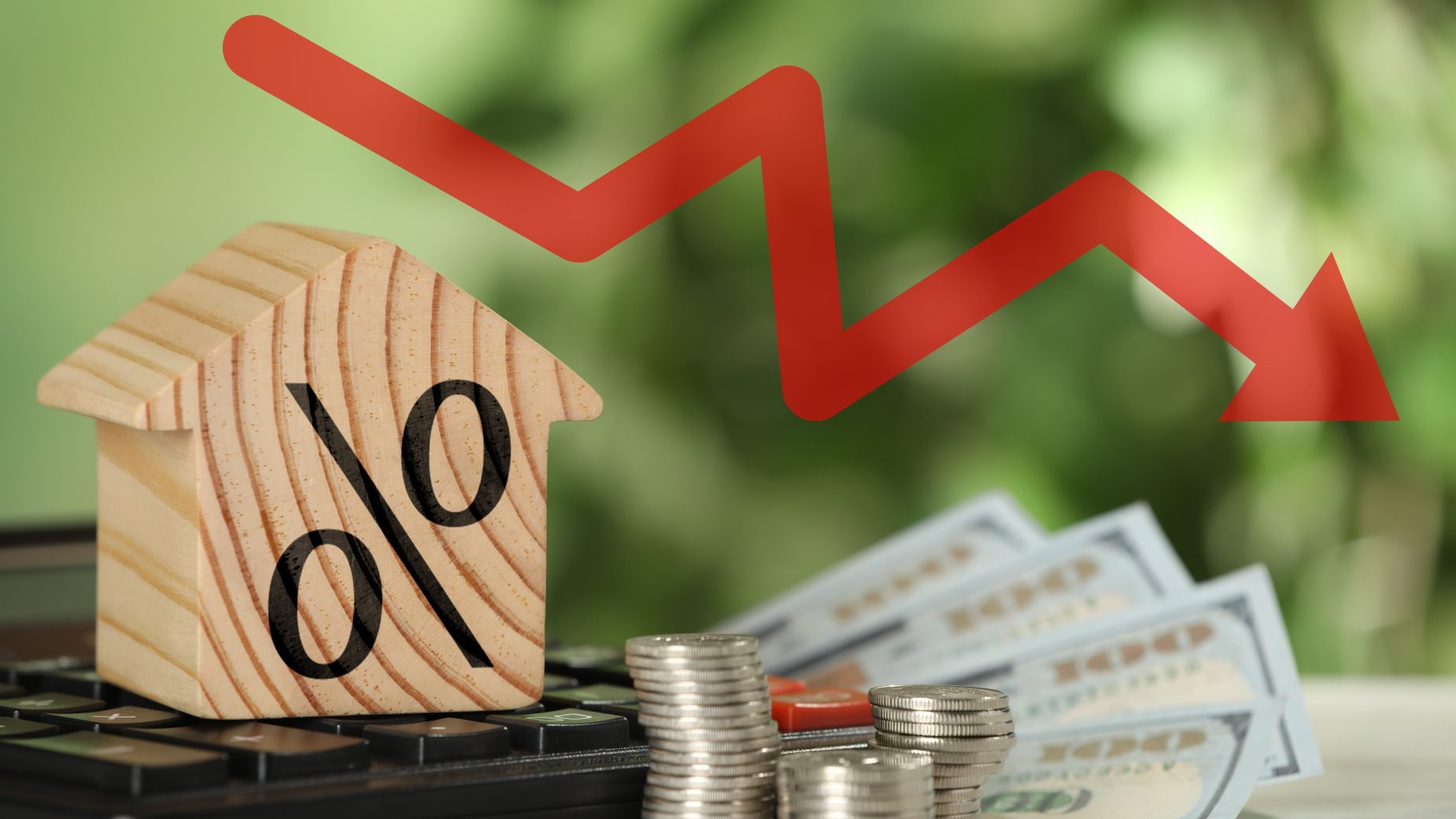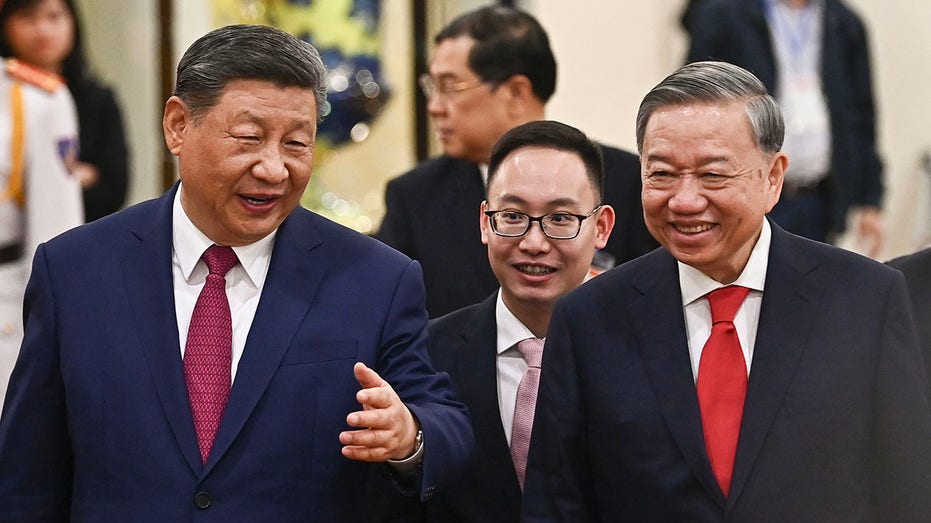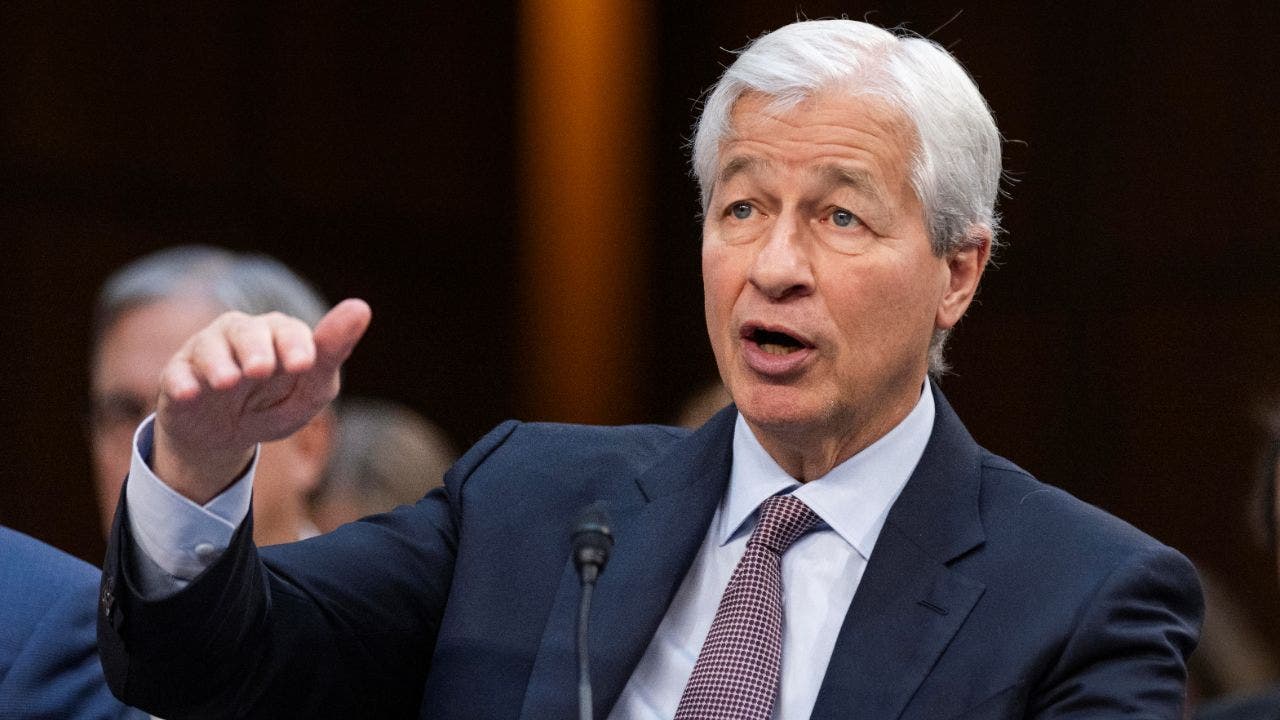Finance News
Mortgage rates continue to fall in the US: what is happening?

Despite the positive economic data on jobs and inflation, mortgage rates in the United States have continued to decline for a second consecutive week, dropping nearly 0.25% over the past few weeks. This is welcome news for potential homebuyers as borrowing costs are decreasing.
There are various economic factors that typically influence mortgage rates. For example, the Federal Reserve may cut interest rates in response to a weak economy or concerns about a recession, which can then impact mortgage rates. The state of the bond market is also important, as mortgage rates are closely linked to bond market performance. Additionally, housing market conditions play a crucial role, as lenders may offer more attractive borrowing rates if there is an oversupply of available properties.
Mortgage rates in the US
According to Freddie Mac data issued on Thursday, the 30-year fixed-rate mortgage averaged 6.74% in the week ending March 14, down from 6.88% the week before. The average 30-year fixed rate was 6.60% one year ago. While there may be fluctuations in rates in the coming months, significant declines should not be anticipated.
Despite the recent decline, mortgage rates are still relatively high due to inflation putting pressure on the market, as noted by Sam Khater, Freddie Mac’s chief economist. It is likely that rates will remain elevated for an extended period in this scenario.
Homebuyers who have been facing challenges in a costly market can now purchase homes at more affordable prices, thanks to the decrease in mortgage rates over the past four months. However, the economy appears to be operating hotter than expected, as shown by strong inflation readings and unexpectedly high job numbers in February.
How does inflation impact mortgage rates in the United States?
The Federal Reserve controls inflation by raising the federal funds rate, which in turn makes borrowing more expensive for banks and results in higher interest rates on loans, including mortgages. High inflation affects the purchasing power of fixed-income investments like bonds, causing investors to seek higher returns on bonds.
This increased demand for higher returns on bonds leads to higher interest rates on mortgage-backed securities and subsequently, increased mortgage rates. However, if mortgage rates are falling despite rising inflation, there may be other factors at play such as bond market dynamics or housing market conditions.
The Federal Reserve rate-raising campaign
The Federal Reserve’s historic rate raise campaign has significantly reduced inflation over the past two years. Chair Jerome Powell believes the central bank should wait for further signs of inflation improvement before considering cutting interest rates.
As Fed rate decreases are not expected until the summer or even fall, this could keep mortgage rates elevated. While the Fed’s actions do not directly determine mortgage rates, they do have an impact since mortgage rates reflect the yield on 10-year US Treasury notes. Therefore, a decrease in inflation should eventually lead to lower mortgage rates.
More inventory is available but affordability issues remain
Homebuyers are pleased with the lower mortgage rates compared to last fall, when rates were around 8%. A continued downward trend in interest rates is expected to attract more buyers and sellers this spring. However, rising property prices may eat into savings, causing some buyers to hold off on purchasing in hopes of lower mortgage rates. Both choices have their drawbacks, as dropping rates are not guaranteed and prices are projected to rise.
FAQ
- What is Freddie Mac? Freddie Mac, or the Federal Home Loan Mortgage Corporation, is a government-sponsored enterprise that plays a key role in the US secondary mortgage market by purchasing and guaranteeing mortgages.
- How does the Federal Reserve impact mortgage rates? The Federal Reserve’s decisions on interest rates can influence mortgage rates indirectly by affecting the overall economic outlook and bond market performance.
Finance News
Rare earth minerals at center of US-China trade talks after export drop

Fox News contributor Michael Pillsbury on what’s at stake as U.S. and China hold trade talks in London.
Officials from the U.S. and China met on Monday to begin a two-day session to discuss bettering trade ties and further deescalate the trade war.
Details of the meeting have not yet emerged, though a source told FOX Business the discussions lasted nearly seven hours and prompted the delegations to order dinner in, as they continued negotiations.
The meeting, which will continue tomorrow, comes just four days after President Donald Trump and Chinese President Xi Jinping held a phone call for the first time since Trump re-entered office and then hit Beijing with a whopping 145% tariff.
Though China initially responded with reciprocal 125% tariffs, both sides agreed to temporarily slash the trade dispute for 90 days last month, as negotiators worked to improve trade ties, temporarily putting in place a 30% tariff on Chinese goods, while Beijing implemented a 10% tariff on U.S. imports.

China’s President Xi Jinping shakes hands with President Donald Trump before a bilateral meeting on the sidelines of the G-20 Summit in Osaka, Japan, in June 2019. (Brendan Smialowski/AFP / Getty Images)
EXPERT REVEALS AMERICA’S ‘SECRET WEAPON’ AGAINST LONG-TERM COMPETITION WITH CHINA
White House economic advisor Kevin Hassett on Monday said rare-earth minerals will be at the heart of what the administration is hoping to get out of this round of talks, particularly after it accused China of purposefully slow-rolling exports of the critical minerals.
China last month dropped its supply of rare-earth minerals by nearly 50% from the year prior in what some reporting suggested was a move to highlight its trump card when it comes to the valuable elements.
“The purpose of the meeting today is to make sure that they’re serious, but to literally get handshakes,” Hassett, director of the National Economic Council, told CNBC on Monday. “Our expectation is that after the handshake… any export controls from the U.S. will be eased and the rare earths will be released in volume and then we can go back to negotiating smaller matters.”

Vietnam’s Communist Party General Secretary To Lam, right, and China’s President Xi Jinping leave after their meeting in Hanoi on April 14, 2025. (Nhac Nguyen/Pool/AFP via / Getty Images)
JOB GROWTH CONTINUED TO SLOW IN MAY AMID ECONOMIC UNCERTAINTY
Hassett said Trump and Xi discussed the issue of rare-earth exports and magnets, of which China controls some 90%, and which are necessary for major industries like auto and tech.
The director said the export slowdown could disrupt companies across the economy and noted Trump took the issue “very seriously.”
Despite assurances from the president that customers would not feel the sticker shock at the checkout counter, rare-earth minerals were not the only item to take a hit.

Rare-earth mine in a town in Inner Mongolia in China. The mines north of town are one of the largest deposits of rare earth metals found in the world. (Bert van Dijk / Getty Images)
GET FOX BUSINESS ON THE GO BY CLICKING HERE
According to a Reuters report, China’s exports to the U.S. dropped nearly 35% last month from the previous year, which is the sharpest drop since the coronavirus outbreak began to hit the U.S. in February 2020.
Top administration officials from the U.S., including Treasury Secretary Scott Bessent, Commerce Secretary Howard Lutnick and U.S. Trade Representative Jamieson Greer, are expected to attend the meetings in London, signaling how significant restoring rare earth exports is to Washington.
Fox Business’ Edward Lawrence contributed to this report.
Finance News
JPMorgan CEO Jamie Dimon to allow Bitcoin at the bank

Bespoke Investment Group co-founder Paul Hickey breaks down the current volatility in the market and discusses his current favorite investment opportunities on ‘Making Money.’
JPMorgan CEO Jamie Dimon still isn’t a fan of Bitcoin but he’s not letting his personal feelings get in the way of business at the bank.
“When I look at the Bitcoin universe, the leverage in the system, the misuse,” he said at the company’s annual investor day Monday in New York. Noting that bad actors can use it for sex trafficking and terrorism.
“I am not a fan of it. We are going to allow you to buy it. And we’re not going to custody it. We’re going to do is put it on statements for clients. So, you know, I don’t think we should smoke, but I defend your right to smoke. I defend your right to buy Bitcoin, go at it”, he added.
JPMorgan Chase CEO Jamie Dimon Speaks at Investor Day 5/19
At JPMorgan’s Investor Day, Dimon said the bank will now allow clients to buy Bitcoin but that policy hasn’t changed his view on the cryptocurrency. (JP Morgan)
Bitcoin, the largest crypto by market value, is just shy of its all-time high of $106,734.51 reached last year.
DIMON SOUNDS OFF ON HIGH MORTGAGE RATES, LAYS BLAME
Dimon has long been a critic of Bitcoin, including these remarks from 2021:
“I personally think that Bitcoin is worthless,” Dimon said while speaking at a virtual event hosted by the Institute of International Finance. “But I don’t want to be a spokesman for that, I don’t care. It makes no difference to me.” Dimon has also likened the crypto to “fools gold.”
Shares of JPMorgan Chase are up over 10% outperforming the S&P 500 which is flat for the year.
In January 2024, the Securities and Exchange Commission greenlighted the first Bitcoin exchange-traded fund, prompting a slew of firms to launch their own, making the asset class more accessible for both institutional and retail investors.
| Ticker | Security | Last | Change | Change % |
|---|---|---|---|---|
| IBIT | ISHARES BITCOIN TRUST – USD ACC | 60.66 | +0.68 | +1.13% |
| FBTC | FIDELITY WISE ORIGIN BITCOIN FUND – USD ACC | 93.14 | +0.98 | +1.06% |
| GBTC | GRAYSCALE BITCOIN TRUST ETF – USD ACC | 84.12 | +0.88 | +1.06% |
GET FOX BUSINESS ON THE GO BY CLICKING HERE
iShares Bitcoin Trust ETF, Fidelity Wise Origin Bitcoin ETF and Grayscale Bitcoin Trust ETF are currently the largest funds by assets under management, as tracked by ETF.com.
Finance News
Credit Repair Hacking – Boost Your Credit Score

Product Name: Credit Repair Hacking – Boost Your Credit Score
All orders are protected by SSL encryption – the highest industry standard for online security from trusted vendors.

Credit Repair Hacking – Boost Your Credit Score is backed with a 60 Day No Questions Asked Money Back Guarantee. If within the first 60 days of receipt you are not satisfied with Wake Up Lean™, you can request a refund by sending an email to the address given inside the product and we will immediately refund your entire purchase price, with no questions asked.
-

 Reverse Mortgage1 year ago
Reverse Mortgage1 year agoHow Reverse Loans Can Provide Financial Relief in Retirement
-

 Mortgage Rates1 year ago
Mortgage Rates1 year agoComo puedo comprar una casa a crédito si no se nada?
-

 Mortgage Rates1 year ago
Mortgage Rates1 year agoNiro Loan App 2024 || Niro App Se Loan Kaise Le || New Loan App Best Instant Loan App Without Cibi
-

 Reverse Mortgage1 year ago
Reverse Mortgage1 year agoExploring the Myths and Realities of Reverse Mortgages for Seniors in 2024
-

 Reverse Mortgage1 year ago
Reverse Mortgage1 year agoThe Pros and Cons of Using a Reverse Mortgage for Retirement Planning
-

 Reverse Mortgage8 months ago
Reverse Mortgage8 months agoThe Benefits of a HECM Loan for Seniors: Financial Freedom in Retirement
-

 USDA Mortgage1 year ago
USDA Mortgage1 year agoMaking Your Dream of Country Living a Reality: FMHA Rural Home Loans in Focus
-

 Auto Loans6 months ago
Auto Loans6 months agoDrive Away in Your Dream Chevy with Chevrolet’s Hassle-Free Lending Process

